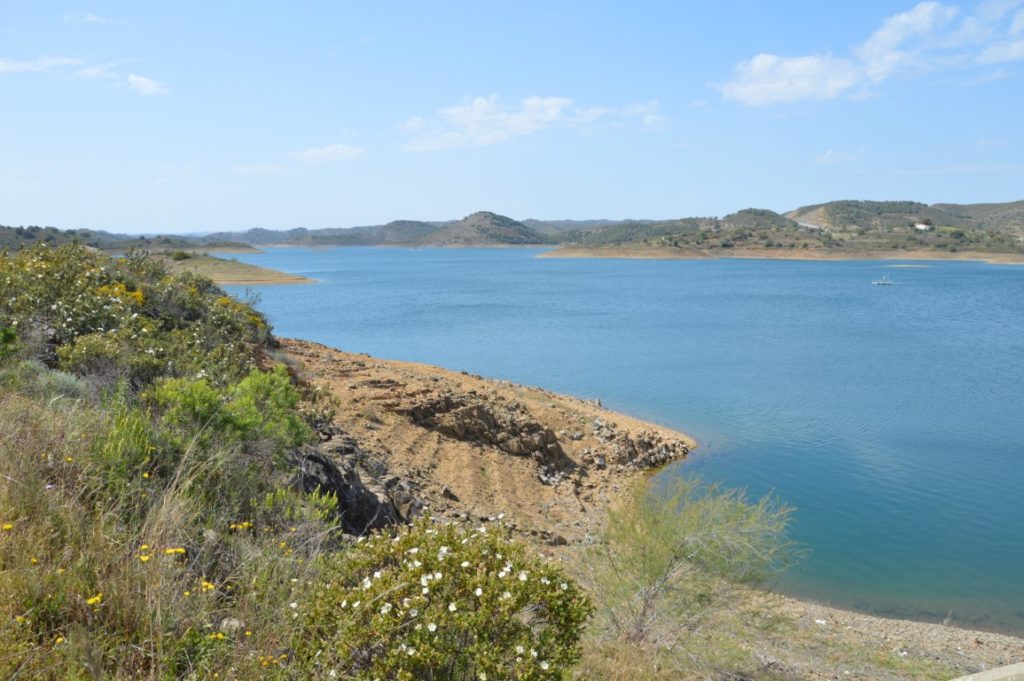in good time I started in the Sul Informação, to a necessary and very useful debate these days, always with broad perspectives for the future, given the delicate moment we are living, especially in the Eastern Algarve.
I greatly respect and esteem the opinions and the intellectually elegant people who are the Architect Gonçalo Duarte Gomes and the Engineer Pedro MonteirO. We are basically all with the same concern and we certainly won't disagree with solutions that are not unique, but rather multifaceted and that have to be coherent with each other. Something different was a comment on Twitter by a dull idiot who lives off the public purse, without doing anything or knowing.
The development of my opinion expressed in the article a few days ago is encouraged, in relation to what I said in 2007, as mentioned.
Well, I have been saying and writing several pieces about this problem since 1987, the year in which I find clear texts of my own. And I remember what I said in dozens of public interventions, recorded in the summer of 2005, during the drought that year.
No one with common sense will fail to defend measures for losses in household networks, watering gardens, reusing sanitation water, technological efficiency in agricultural crop irrigation, educating populations for savings, using roofs for cisterns (great tradition of the barrocal), and many others.
But the truth of the matter is that, in the last decade, water consumption has increased, both in agriculture, tourism and other uses. It is true that precipitation has decreased, hence the obvious problem and dilemma of needing more when there is less.
We have in mind the model on which Águas do Algarve's supply contract to the Municipalities was based: they had to have increasing mandatory minimum consumption. I'm not kidding.
The regional economy, with the current tourist overnight stays, with the existing golf courses, with the installed orchards, needs a lot of water, which is scarce.
And it's not worth attacking avocados and doing math whose consistency doesn't seem at all evident. They do not have substantially different consumptions from orange and other fruit trees. Let's be calm in superficial arguments.
I am well aware that everything is not resolved by making one more dam, in this case the Foupana, which seems inevitable to me, to which I have alluded with conviction.
But it is obvious that the other measures, all together, do not solve the problem at hand. In the first week of January 2020, if it does not rain, in Sotavento the irrigation of orchards will be reactivated in midwinter. The populations are spending and the golf courses and gardens are going to ask for water too. This is the reality. If they don't drop another 350mm by April, we have a very serious case in hand. For which there are no short-term solutions.
There is no doubt that it is urgent to develop a long-term Water Plan and submit it to public participation and debate. Government bodies must have the courage to launch it now.
However, there seems to be a fear and a prejudice regarding the dams, if I'm wrong, I'll ask for forgiveness in time. Not to mention an anecdote in the recent election campaign, in which the leader of a party from Geringonça who wanted to be minister, said that the dams caused the water to evaporate, which is why she was against it. Are you aware of what you said?
No dams are built without a serious environmental impact study and adequate mitigation measures, more credible than the study of the Montijo hydro airport.
We are all aware that the problem requires a cascade of various solutions, all coherent and linked together. Everything that is saving water, on the one hand, and storing more, on the other, from the cistern to the dam, will be necessary. Living without water is what we won't be able to.
Opinions developed successively with the reality of the facts are always welcome.
It's bad for us if we spend our whole life saying just the same when reality objectively changes. Who 40 years ago would have been able to speak consistently about climate change?
Author José Macário Correia, farmer



















Comments